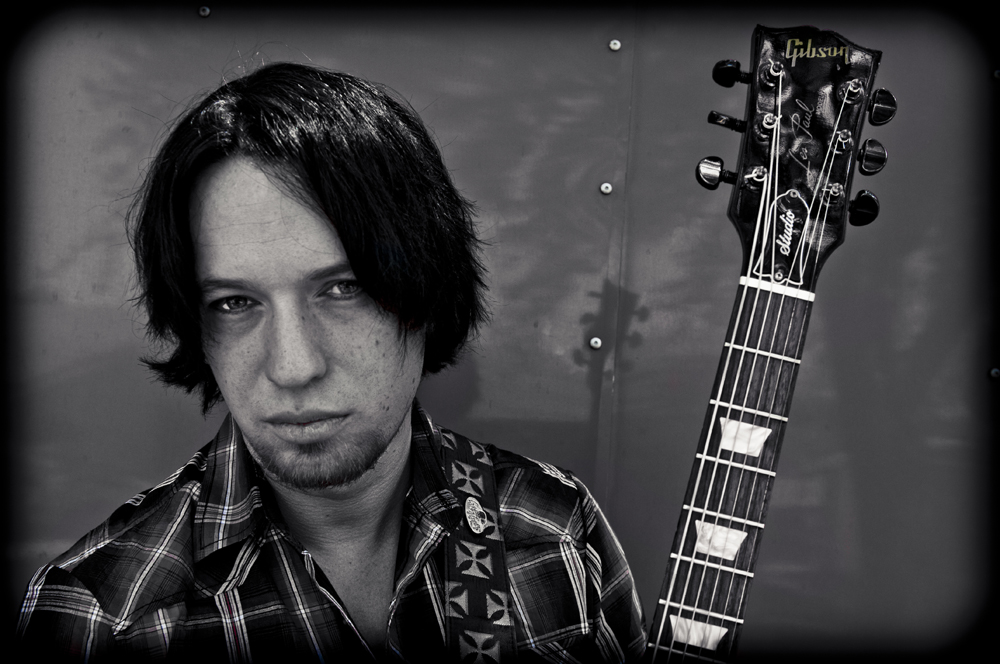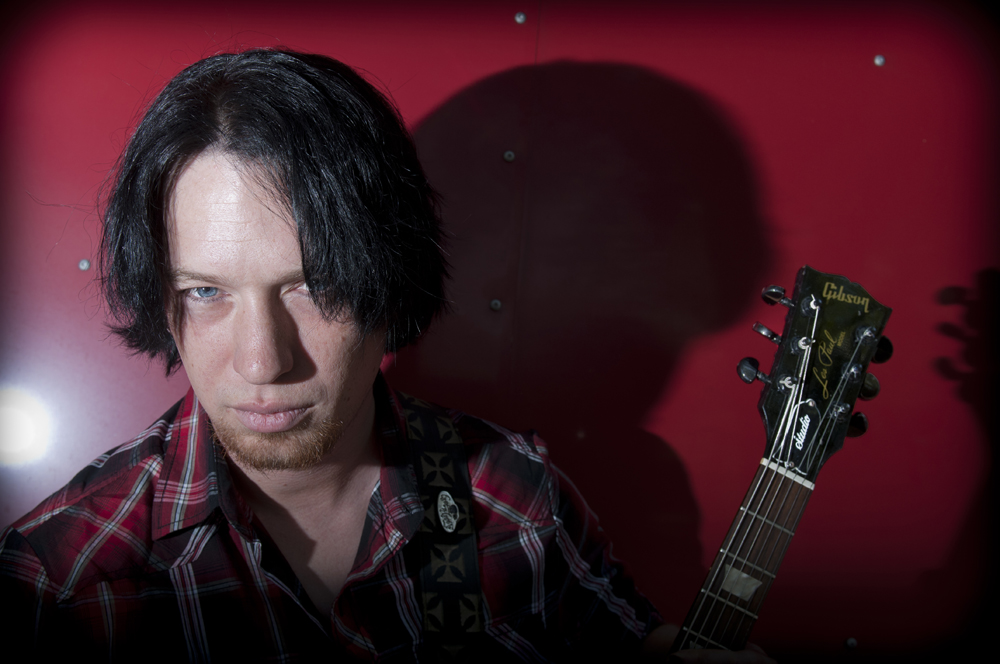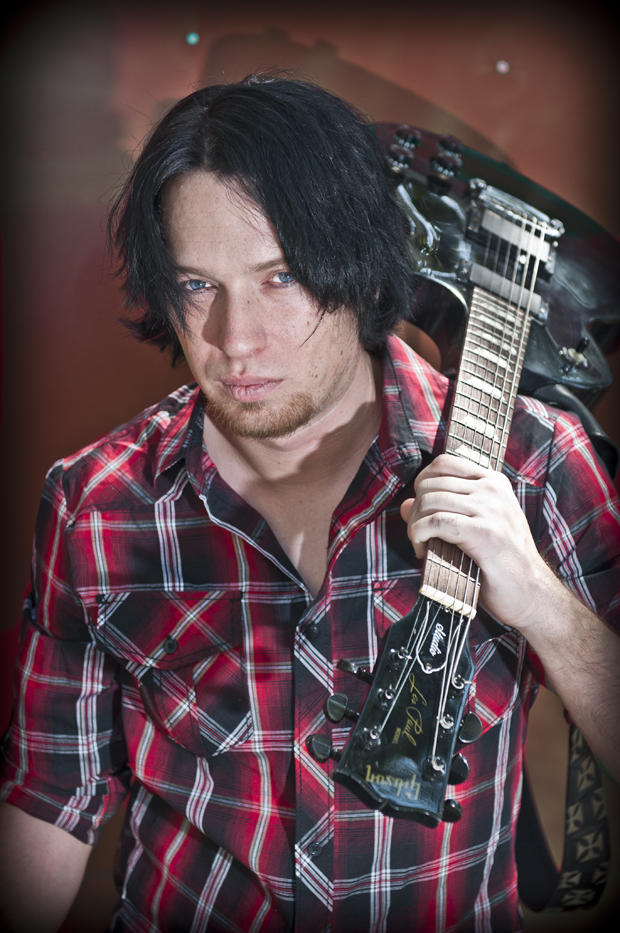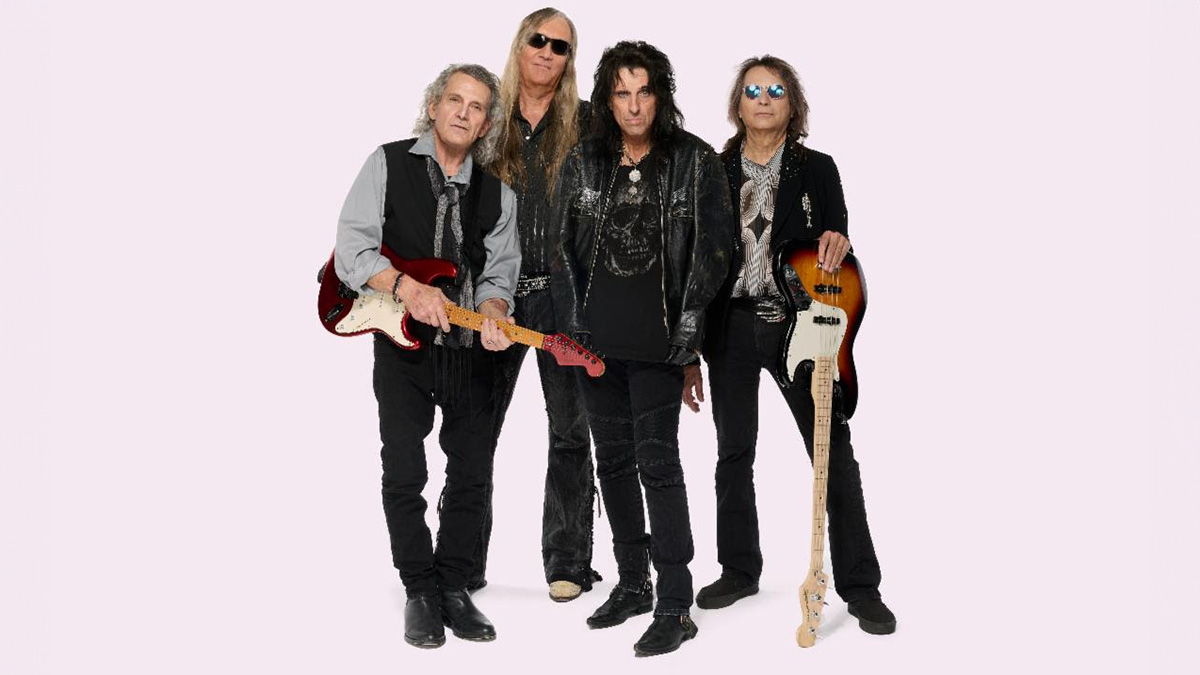Interview: Derrick Carter Takes the Lead with Adakain

Hard work, determination, Ramen noodles — these components, along with solid songwriting and live shows, fuel Dallas rock band Adakain: drummer Ryan Carroll, bassist Jason Schauer, guitarist Derrick Carter, vocalist Travis Buck.
When the band trekked to Tennessee to record their latest EP, Silhouette of Lies, with producer Travis Wyrick (10 Years, Since October), they lived in the studio by day and the RV park by night.
Silhouette of Lies is Adakain’s third album, following a 2007 EP, Tears of Dysphoria, and 2008’s full length, Together in the Heart, their first with frontman Buck. Their style has changed considerably with time, transitioning from a heavier, guttural approach to the smoother vocals on their latest release, which also presents some surprising musical twists, with jazz and ’60s-style influences sneaking into the intros and leads.
As an independent band breaking through, the members of Adakain take nothing for granted. When not on tour, they hold day jobs. When not working 9 to 5, they focus on their music. The work ethics have paid off. Adakain has toured with Pop Evil, Taproot and Crossfade, with whom they just resumed another leg of touring.
Shortly before departing, Carter came home from a full day as an auto mechanic to talk about making music with Adakain.
When did you begin playing guitar?
I started playing when I was 15. I got one for Christmas. I saw the “Sweet Child O’ Mine” video and I was blown away and had to play guitar after that. Slash is one of my main influences as a guitar player because of the way Guns N’ Roses’ songs come together, the aggressiveness and dirtiness, and the solos have a lot of feeling and bluesy tones. I’m also a big Pantera fan and I’m really into pentatonic leads. That’s what I play when I’m on my own, although it doesn’t work for a lot of the music Adakain writes.
Get The Pick Newsletter
All the latest guitar news, interviews, lessons, reviews, deals and more, direct to your inbox!
What is the writing process like for the band?
We come up with a progression of riffs and bring them to Ryan. He’s a guitar player as well, so he’ll add some drum beats and sometimes guitar parts. Some of the songs on the new CD came from Ryan’s ideas. Jason also plays drums. It helps quite a bit when you have musicians who play more than one instrument and can bring things to the table and make suggestions. We don’t just throw down a beat and play over it. We get a song structure, bring it forward and work on it that way, and then the vocals fall in.
What does your practice consist of?
I pull out [tab] and play leads by myself. My writing is heavy; “Good Time Girl” [Silhouette of Lies] was an experiment of trying to go for a happy sound, which is not something that comes naturally to me because I’ve always been into Metallica, Pantera or the Guns N’ Roses-type ballads. I have a Boss 4-track player and I record myself and add stuff on top of that, or get the metronome and practice along to the songs. For fun I learn covers. A lot of my style came from learning cover songs. You study the things you like and you start writing similar stuff.
My thing has always been to learn different styles so that I don’t get myself into a rut. In my earlier years, for a while everything I wrote sounded like Metallica because I was a huge fan, but you realize that’s already been done. You have to take those different influences, come up with something that works for you and expand that to write new kinds of things. I don’t have a set way to practice. Sometimes I play covers, sometimes I write and sometimes I take a song that I’ve learned and set the metronome to increase my speed. And sometimes I just jam for fun. I’m also a fan of classical guitar. I have a nylon string and I’m learning to play that.
What did you learn from working with Travis Wyrick?
It was quite an experience. I sat in front of the board and recorded everything through my amp with the cabs in a sound room. The drum tracks and click were going and that’s how we laid down the guitar. He’s very demanding as far as everything being precise and he puts a strong emphasis on really focusing on the click. Our previous producer was more laid back, but Travis wants everything to be perfect. You play a riff and he says, “OK, we’re going to do something else. Go work on that with a click for a while.”
Being in the studio can be a little bit of a beat-down sometimes, but you have to keep trying. For younger players I recommend practicing on a click because you’ll have to do that when you record, and if you can’t play to that, you won’t get anything done. Ryan uses one onstage so that everything in our set is precise from start to finish.
Were you in many bands prior to Adakain?
Not many. The most my first band ever did was play a high school talent show. After that I was in a thrash metal band that was a lot like Metallica, but we never made it too far. Then I was in a band with Jason for quite a while. That did well, but it didn’t work out in the end. I took a couple of years off from music and got back into it with Adakain.
Why did you stop playing?
I stopped for two years. It was getting to the point where we had to give up our day jobs to pursue music, and at that time I didn’t think the band was ready for it, so I wouldn’t do it. We got in a big feud, I was out and they continued. I said I wouldn’t do it when I joined Adakain, but everything worked out so well and tours started lining up, so I decided this was the time to take the shot. I’ve been doing this full time since 2009.
I’m working now in between tours doing front-end alignments on diesel trucks. That’s what I did today to have some cash for the next tour. It’s strenuous. You come home from doing that all day and you don’t want to pick up the guitar, but you have to or you start losing it, so it can be rough to work everything together. But it’s definitely worth it when you get on tour, meet new people and live the dream. It makes it all worthwhile.
To be in a touring band you have to make it your first priority. It has to be number one and you have to work your life around that, which is really hard, especially considering your payoff is pretty much getting to play good shows and the experiences.
It’s not the money, because there’s no money in the music industry unless you really blow up, so you have to have a passion for it and make it your life and do everything you can around that in order to be able to go out and do it. It’s hard. Everything we make sometimes goes toward the gas tank. You’re sleeping in the van, making it day to day and hoping for the best. It’s a rough life, but it’s definitely worth it if you love what you’re doing.
Alison Richter interviews artists, producers, engineers and other music industry professionals for print and online publications. Read more of her interviews here.
Photo: Sarah Dunbar, Music Binge Photography




Alison Richter is a seasoned journalist who interviews musicians, producers, engineers, and other industry professionals, and covers mental health issues for GuitarWorld.com. Writing credits include a wide range of publications, including GuitarWorld.com, MusicRadar.com, Bass Player, TNAG Connoisseur, Reverb, Music Industry News, Acoustic, Drummer, Guitar.com, Gearphoria, She Shreds, Guitar Girl, and Collectible Guitar.
“I knew the spirit of the Alice Cooper group was back – what we were making was very much an album that could’ve been in the '70s”: Original Alice Cooper lineup reunites after more than 50 years – and announces brand-new album
“The rest of the world didn't know that the world's greatest guitarist was playing a weekend gig at this place in Chelmsford”: The Aristocrats' Bryan Beller recalls the moment he met Guthrie Govan and formed a new kind of supergroup










